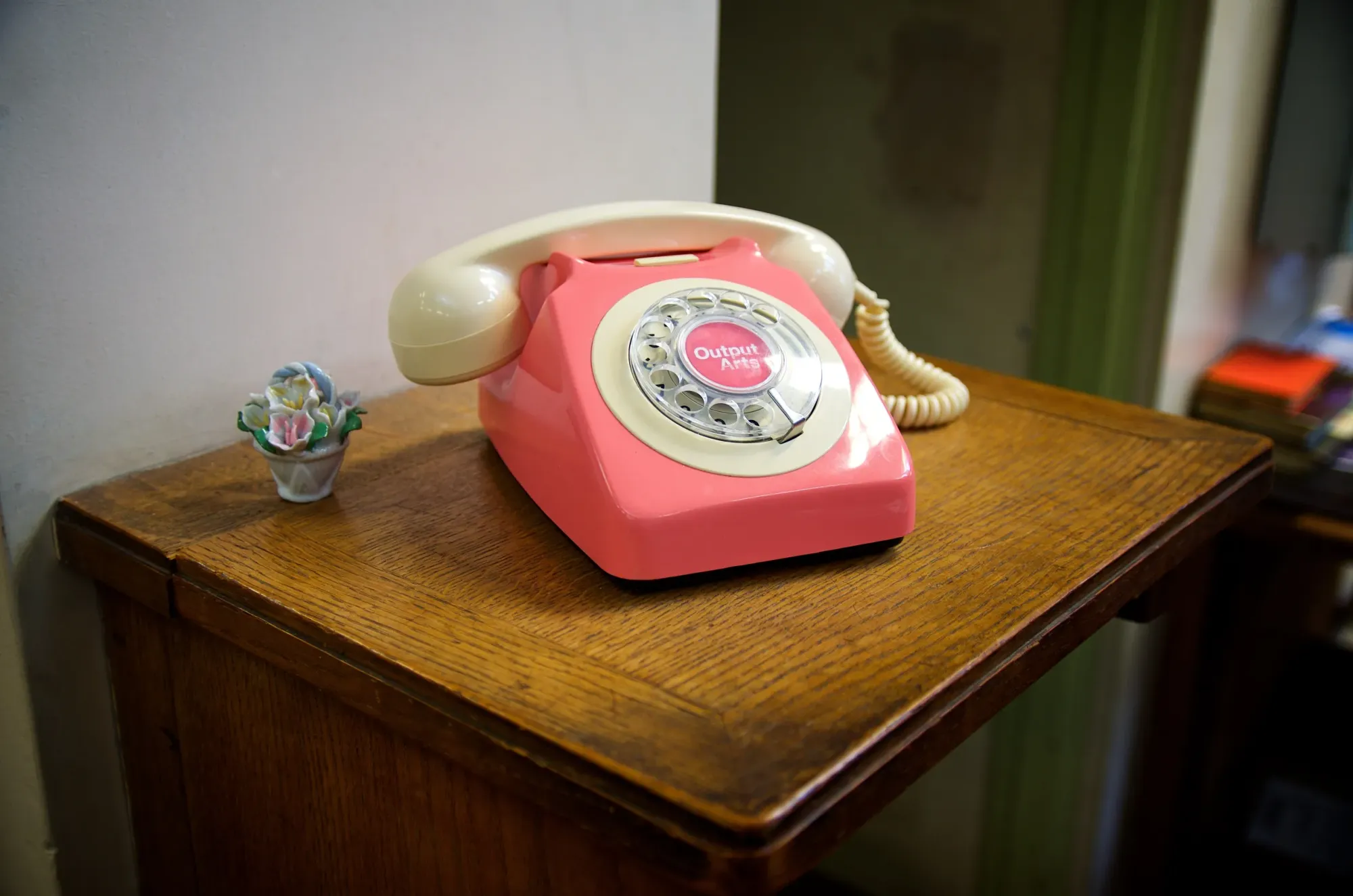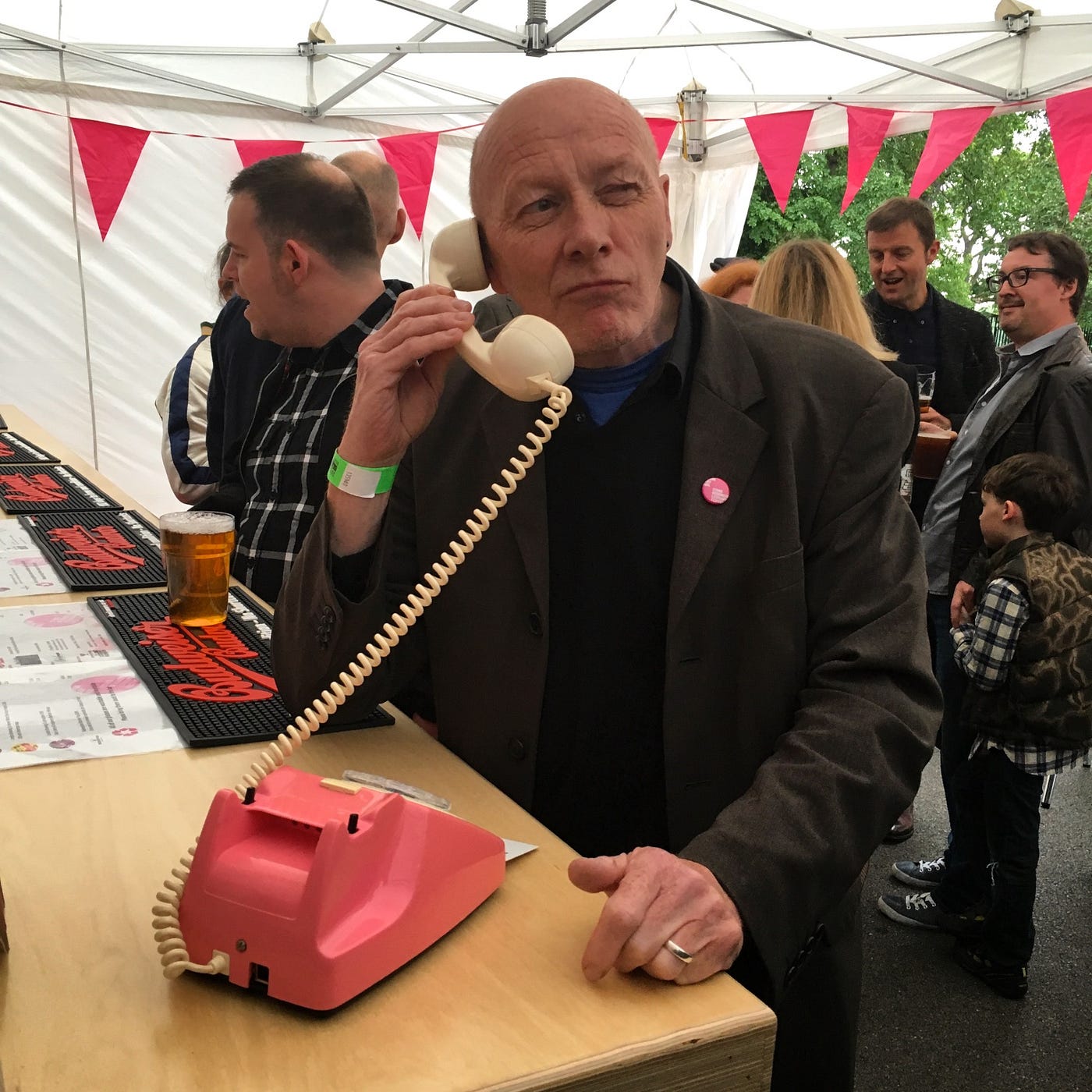Telephone Lines

Stoke Newington Literary Festival has become a cultural highlight
in the local calendar of Output Arts’ manor. It draws together the great and the good of Stoke Newington and beyond, as well as appealing to the rebellious and anarchic thinkers who have long made the area their home: past residents have included Daniel Defoe and Mary Wollstonecraft.
We had long wanted to find a way to get involved with the festival, to tap and engage this highfalutin’ audience, and also to find a means to share something common about using words and connecting. We toyed with lots of ideas, some involving asking simple yet sophisticated questions, some more playful — should we get the opportunity we had ideas aplenty. Then suddenly, BLAM! We're on, with only a week to go! We needed a very simple idea, something instantly understandable and with minimal editing involved.
We considered the structure of stories, the essential elements, and boiled it down to beginnings and endings, the idea of these two pivotal moments in a story appealed to us, the first and last words. So we set about asking the festival staff and speakers to record the first and last lines of a favorite text — what we thought was a simple question, but being asked for your ‘favourite’ anything can be tricky, and of course exposing.
Nonetheless many chose to participate and we immediately had to begin recording. I often feel privileged when recording: holding people's vulnerabilities, their tender discomfort and uncertainty. They came, some eager and grinning, ready to share, some shaking and nervous, regretting their initial compliance; each bringing someone else's words that somehow spoke for them — an intimate act of sharing. Then the voice itself: a portrait or fingerprint, the delivery and emphasis of the words charging them with meaning; the accidental inflection, the tremor and the shake, all beautifully authentic and bringing to mind my own teenage terror of reading aloud!
The compressed timescale led to us also asking some participants to record themselves and each other. The resulting recordings revealed friends enjoying easy and familiar company — the banter and playfulness followed by the the serious business of recording; and the most exquisitely intimate recordings of the self — small under-the-breath comments and noises made absent-mindedly, a sort of unaware flirting with self witnessed by the recorder. Then me, the editor, enjoying the utmost privilege of looking on from the sidelines.
Thankfully we made our deadline, embedding the voices in an old pink telephone in-keeping with the festival colour scheme. The festival opened and the phone was in position on the festival bar. Festival-goers raise the receiver to hear one first line and a different last line read aloud. They are momentarily dropped into the world of the book, beckoned by the story and voice, but remaining unaware of the rich and subtle transactions in the making of the piece.

Telephone Lines is currently installed in the foyer of Stoke Newington Library if you are passing and fancy seeing if you can recognise any of our readers.

